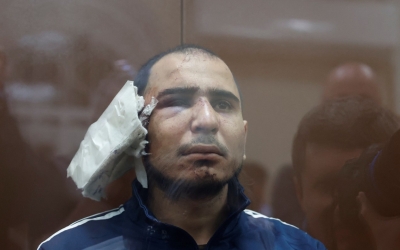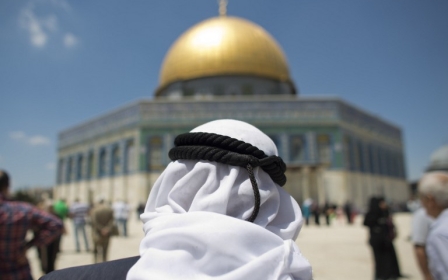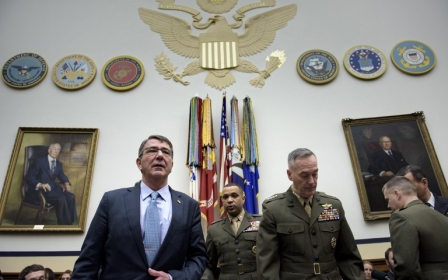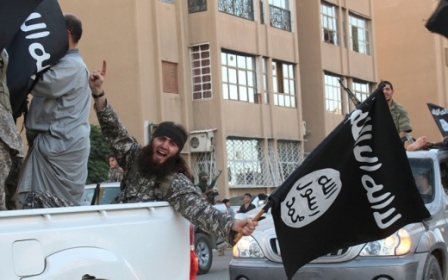Moscow attack: Will Russia and Turkey intensify the fight against IS-K?
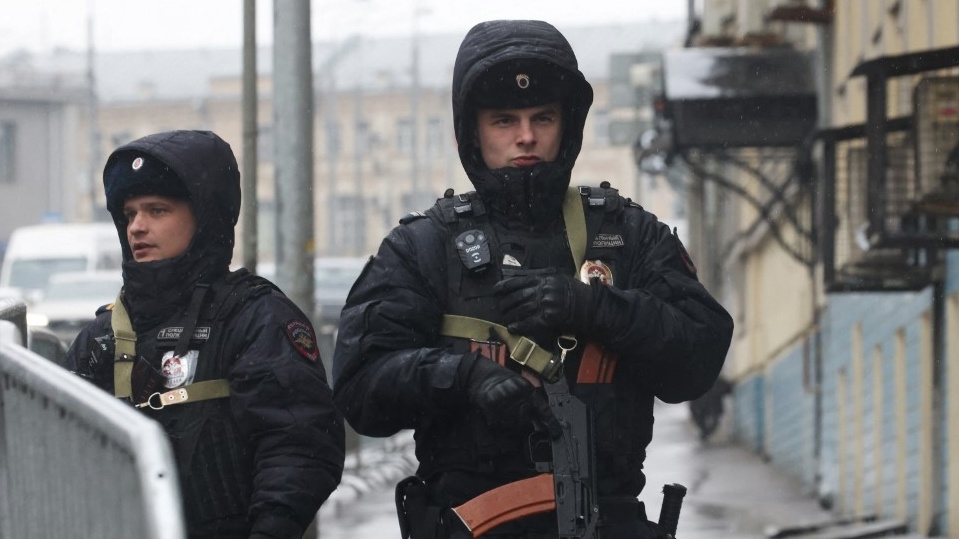
This month’s deadly attack in Moscow has brought the Islamic State-Khorasan (IS-K) group back onto the international news agenda, as countries across the region are once again paying attention to this longstanding, but often ignored threat.
Russia has charged four Tajik nationals in connection with the attack on a Moscow concert venue, which killed more than 140 people. An attack like this in the capital of a security state such as Russia shows how the Islamic State (IS) group has continued to develop its international impact and image, despite its public collapse five years ago.
The group’s spread from Syria and Iraq to parts of Africa and Central Asia, along with its recruitment of new forces and the creation of new cells, have increased the threat IS poses to the region. IS-K is now exploiting this potential.
The fact that two of the Moscow attackers recently travelled to Turkey to renew their Russian residence permits tells a story. In addition to revealing more about IS-K’s strategy, it suggests that regional countries have not taken this threat seriously enough, as the group uses a broad-based network to stage deadly attacks.
It also indicates that different layers of IS networks across the Middle East and Central Asia have influence over the operational aspects of local cells in Russia.
New MEE newsletter: Jerusalem Dispatch
Sign up to get the latest insights and analysis on Israel-Palestine, alongside Turkey Unpacked and other MEE newsletters
The threat posed by IS-K is particularly significant for Turkey, as members of the group from Central Asian nations can more easily infiltrate the broader Turkic region.
When the Taliban took power in Afghanistan in 2021, Turkey faced a massive refugee influx. According to UN data, more than 1.6 million Afghans have since fled the country; Turkey hosts an Afghan refugee population of more than 300,000.
Operational vacuum
This has opened space for IS-K, which has been active in Afghanistan since 2015, to channel human resources to fill the operational vacuum left after the public collapse of IS in 2019. Turkey has become a destination for IS-K networks; towards the end of January, a local cell conducted an attack in Istanbul.
Like the attack in Russia, which was claimed under the generic terminology of “soldiers of the caliphate”, the Istanbul attack was claimed by the “Turkey province” of IS. Similarly, twin explosions in Kerman, Iran, in January were claimed by IS. But in each case, connections to IS-K have emerged. IS-K might have provided support at various levels for the planning, financing and execution of the Moscow attack.
The group can mobilise cells scattered across the periphery of the region through a remotely directed structure
We should assume that IS-K’s organisational structure is diverse, with some layers under central control from Afghanistan or Pakistan, and other branches only loosely connected or influenced by them. The group can mobilise cells scattered across the periphery of the region through a remotely directed structure. The level of involvement between the central structure of IS-K and other cells can vary from one attack to the next.
According to researcher Aaron Zelin, “unlike many previous groups that relied on stable safe havens to gain more time and space for planning and training, IS-K has actually grown weaker in Afghanistan during the Taliban’s second year in power - while paradoxically expanding its external operations capacity”.
IS-K has built its presence through international propaganda efforts, while also focusing on conducting operations in various countries as a transnational organisation.
In the years leading up to 2014, Russia reportedly turned a blind eye to Islamist fighters leaving the country to join IS, hoping to lessen the risk of domestic terrorism. This strategy would come back to haunt it, as the armed group’s subsequent pivot to Africa and Central Asia, coupled with Moscow’s expanding activities in Africa, made Russia a prime target.
Warning to the world
Two additional developments further fuelled anti-Russia sentiment. Firstly, after the US withdrawal from Afghanistan in 2021, Russia sought to strengthen ties with the Taliban regime. This raised concerns for IS-K that the two states could combine resources to battle the armed group.
Then, with the start of the war in Ukraine, IS argued in its own propaganda: “This bloody war taking place today, between the Orthodox crusaders - Russia and Ukraine - is an example of the punishment that was unleashed upon them and is forever glued to them.”
In light of its demographic structure and the nature of its economic relations with Central Asian states, Russia could remain an open field of action for IS-K in the months and years ahead - regardless of how many precautions it takes - as migration from Tajikistan and other Central Asian nations remains high.
Indeed, Russia’s difficult period with the armed group might have only just begun.
In sum, after the collapse of IS strongholds in Syria and Iraq, followed by the Taliban takeover of Afghanistan, IS-K has been shifting its tactics across the region. This has included a growing focus on international reach, both in terms of propaganda and, eventually, operations. Thus, the potential threat from IS-K is not confined to the Khorasan region.
Russia, meanwhile, is about to enter a period of war on the group domestically. As a consequence of the Moscow attack, we can expect the state to take more aggressive counter-terrorism measures.
And this should be a warning to the rest of the world - not just western nations that have recently warded off attacks, but also superpowers such as China, whose nationals have been targeted by IS in recent years and months.
The views expressed in this article belong to the author and do not necessarily reflect the editorial policy of Middle East Eye.
Middle East Eye delivers independent and unrivalled coverage and analysis of the Middle East, North Africa and beyond. To learn more about republishing this content and the associated fees, please fill out this form. More about MEE can be found here.


